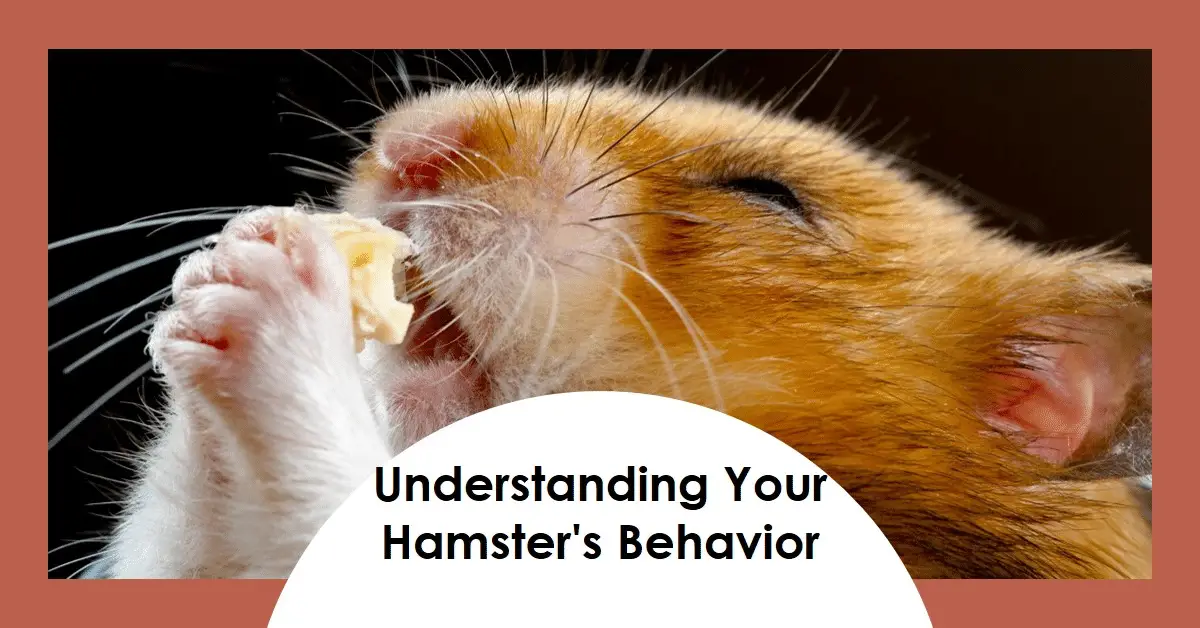Witnessing your beloved hamster shaking with its eyes closed can be a concerning sight. This behavior, known as “twitching” or “shuddering,” can have various underlying causes, ranging from harmless and temporary to more serious health issues. In this comprehensive guide, we’ll explore the potential reasons behind your hamster’s shaking and closed eyes, and provide you with practical tips on how to address the situation.
The answer to why your hamster is shaking with eyes closed may lie in one or more of the following reasons:
- Seizures or neurological disorders
- Sleep behavior or dreaming
- Cold temperatures or low blood sugar
- Dehydration or electrolyte imbalance
- Stress, fear, or anxiety
- Pain or discomfort
- Old age or natural causes
Let’s delve deeper into each of these potential causes and understand how to identify and address them effectively.
Seizures or Neurological Disorders
One of the most concerning reasons for a hamster’s shaking and closed eyes could be seizures or underlying neurological disorders. Seizures can cause involuntary muscle contractions, tremors, and loss of consciousness, which may manifest as shaking and closed eyes.
Potential causes of seizures in hamsters include:
- Head trauma
- Brain tumors or cysts
- Genetic disorders
- Metabolic imbalances
- Exposure to toxins or chemicals
If your hamster is experiencing seizures, it’s crucial to seek immediate veterinary attention. Seizures can be life-threatening if left untreated and may require medication or specialized care.
Sleep Behavior or Dreaming
Believe it or not, your hamster’s shaking and closed eyes could be a normal part of their sleep behavior or dreaming phase. Just like humans, hamsters experience different stages of sleep, including rapid eye movement (REM) sleep, during which they may exhibit twitching or shaking movements.
While this behavior may seem concerning, it’s generally harmless and a natural part of your hamster’s sleep cycle. If the shaking and closed eyes occur during periods of rest or inactivity, it’s likely that your hamster is simply dreaming or experiencing a deep sleep phase.
Cold Temperatures or Low Blood Sugar
Hamsters are sensitive to temperature changes and can experience shaking or trembling if exposed to cold environments. This behavior is a natural response to conserve body heat and maintain their internal temperature.
Additionally, low blood sugar levels (hypoglycemia) can also cause shaking and lethargy in hamsters. This can occur if your hamster hasn’t had access to food for an extended period or if their diet lacks proper nutrition.
To address these issues, ensure that your hamster’s living environment is maintained at a comfortable temperature (between 65°F and 75°F or 18°C and 24°C) and provide a well-balanced diet with access to fresh food and water at all times.
Dehydration or Electrolyte Imbalance
Dehydration or electrolyte imbalances can lead to muscle tremors, weakness, and shaking in hamsters. These conditions can be caused by:
- Lack of access to clean water
- Excessive urination or diarrhea
- Kidney or liver problems
- Electrolyte deficiencies or imbalances
If you suspect dehydration or electrolyte imbalances, it’s crucial to provide your hamster with fresh, clean water and consult a veterinarian for proper treatment and dietary recommendations.
Stress, Fear, or Anxiety
Hamsters are prey animals, and their natural instinct is to hide and remain still when faced with perceived threats or stressful situations. However, excessive stress, fear, or anxiety can manifest as shaking, trembling, or even freezing behavior with closed eyes.
Potential causes of stress or fear in hamsters include:
- Loud noises or disturbances
- Changes in their environment or routine
- Handling or interaction with humans or other pets
- Introduction of new objects or cage mates
To alleviate stress and anxiety in your hamster, identify and remove the potential stressors, provide a quiet and secure living environment, and consider introducing enrichment activities or toys to promote a sense of security and calmness.
Pain or Discomfort
In some cases, a hamster’s shaking and closed eyes may be a sign of pain or discomfort. This can be caused by various underlying health issues, such as:
- Dental problems or mouth injuries
- Digestive issues or gastrointestinal discomfort
- Respiratory infections or breathing difficulties
- Arthritis or joint pain (common in older hamsters)
- Injuries or wounds
If you suspect that your hamster is in pain or discomfort, it’s essential to seek veterinary attention as soon as possible. A professional examination and proper treatment can help alleviate your hamster’s suffering and address the underlying cause.
Old Age or Natural Causes
As hamsters age, they may experience natural physical changes and health issues that can lead to shaking, trembling, or decreased mobility. In some cases, shaking and closed eyes can be a normal part of the aging process and may not necessarily indicate a serious underlying condition.
However, it’s still important to monitor your elderly hamster closely and consult a veterinarian to rule out any potential health concerns and ensure that your pet is comfortable and receiving appropriate care.
How to Help a Shaking Hamster
If your hamster is shaking with its eyes closed, here are some steps you can take to help:
- Observe and Document: Keep a close eye on your hamster’s behavior, frequency, and duration of shaking episodes. Note any other accompanying symptoms or changes in behavior or appetite.
- Provide a Warm and Quiet Environment: If your hamster appears cold or stressed, move them to a warm, quiet, and secure environment. Ensure adequate bedding and nesting materials are available.
- Check Food and Water Supply: Ensure that your hamster has access to fresh food and clean water. Dehydration or malnutrition can contribute to shaking.
- Seek Veterinary Advice: If the shaking persists or is accompanied by other concerning symptoms, it’s essential to consult a qualified veterinarian. They can perform a thorough examination, identify the underlying cause, and provide appropriate treatment or recommendations.
- Consider Medication or Supportive Care: Depending on the diagnosis, your veterinarian may recommend medication, dietary changes, or supportive care to address the underlying issue and alleviate your hamster’s discomfort.
Frequently Asked Questions (FAQs)
1. Can stress or fear alone cause a hamster to shake with closed eyes?
Yes, excessive stress or fear can trigger a hamster’s natural “freeze” response, leading to shaking or trembling with closed eyes. This behavior is a defense mechanism to avoid detection by potential predators.
2. Is it normal for a hamster to shake while sleeping or dreaming?
Yes, it’s perfectly normal for hamsters to exhibit slight twitching or shaking movements during their sleep cycles, particularly during the REM (rapid eye movement) phase when they may be dreaming.
3. Can a hamster recover from seizures or neurological disorders?
The prognosis for hamsters with seizures or neurological disorders depends on the underlying cause and severity of the condition. In some cases, proper treatment and medication can help manage or control seizures, while in others, the condition may be progressive or life-threatening.
4. How can I prevent my hamster from getting stressed or anxious?
To prevent stress and anxiety in your hamster, provide a consistent and calm living environment, minimize loud noises or sudden changes, and introduce new objects or cage mates gradually. Regular exercise and enrichment activities can also help reduce stress levels.
5. When should I seek veterinary attention for a shaking hamster?
If your hamster’s shaking persists for an extended period, is accompanied by other concerning symptoms (such as lethargy, loss of appetite, or difficulty breathing), or if the shaking seems severe or distressing, it’s best to seek prompt veterinary attention.
Conclusion
Witnessing your hamster shaking with its eyes closed can be a worrying experience, but it’s important to remain calm and observe the situation closely. While some instances of shaking may be harmless and related to sleep behavior or natural causes, others may indicate underlying health issues that require prompt attention.
By understanding the potential causes, monitoring your hamster’s behavior, and seeking veterinary advice when necessary, you can ensure that your furry friend receives the proper care and treatment they need.
Remember, prevention is key. Providing a comfortable living environment, a balanced diet, and regular veterinary check-ups can help minimize the risk of health issues and ensure a happy, healthy life for your beloved hamster.



